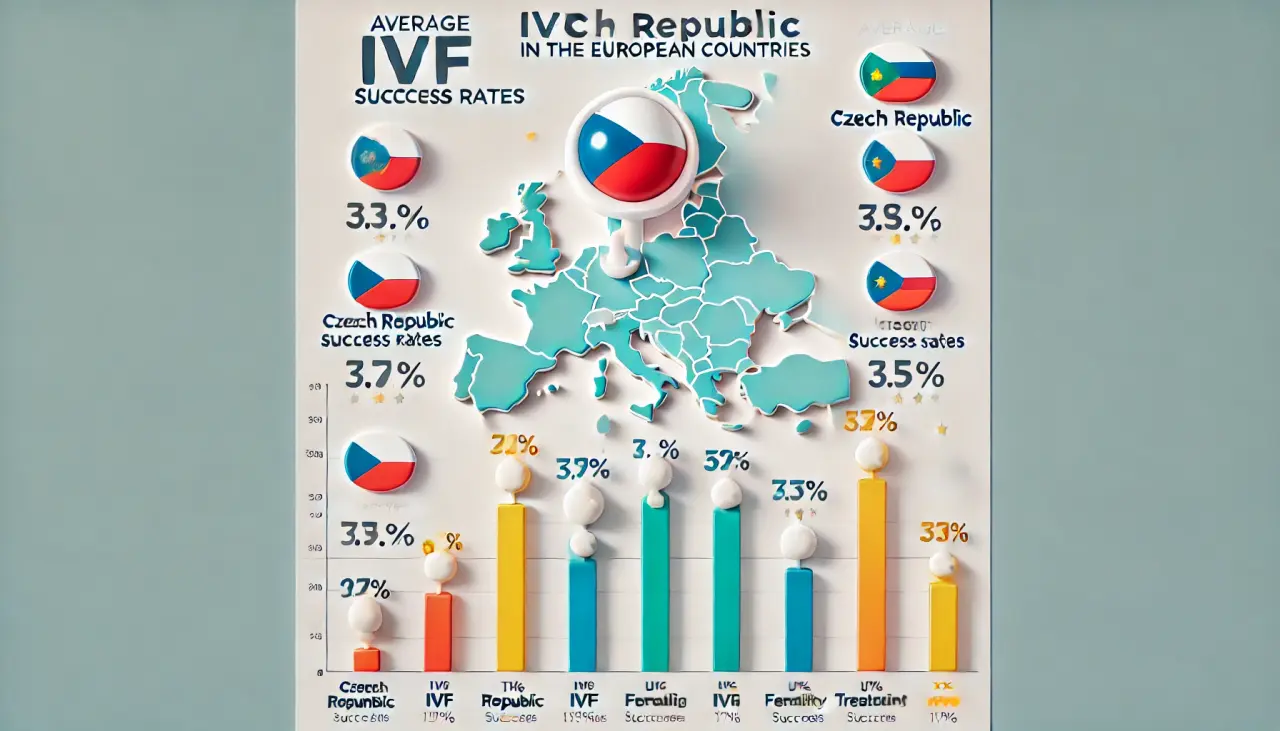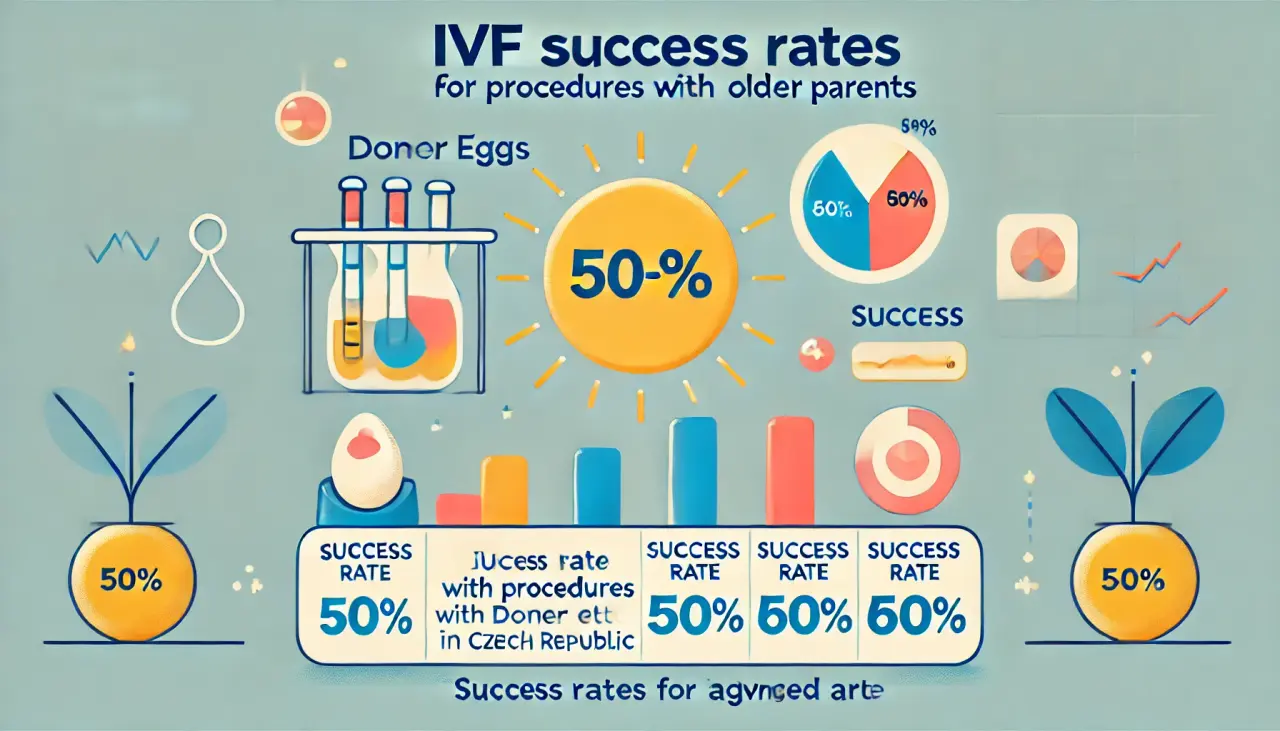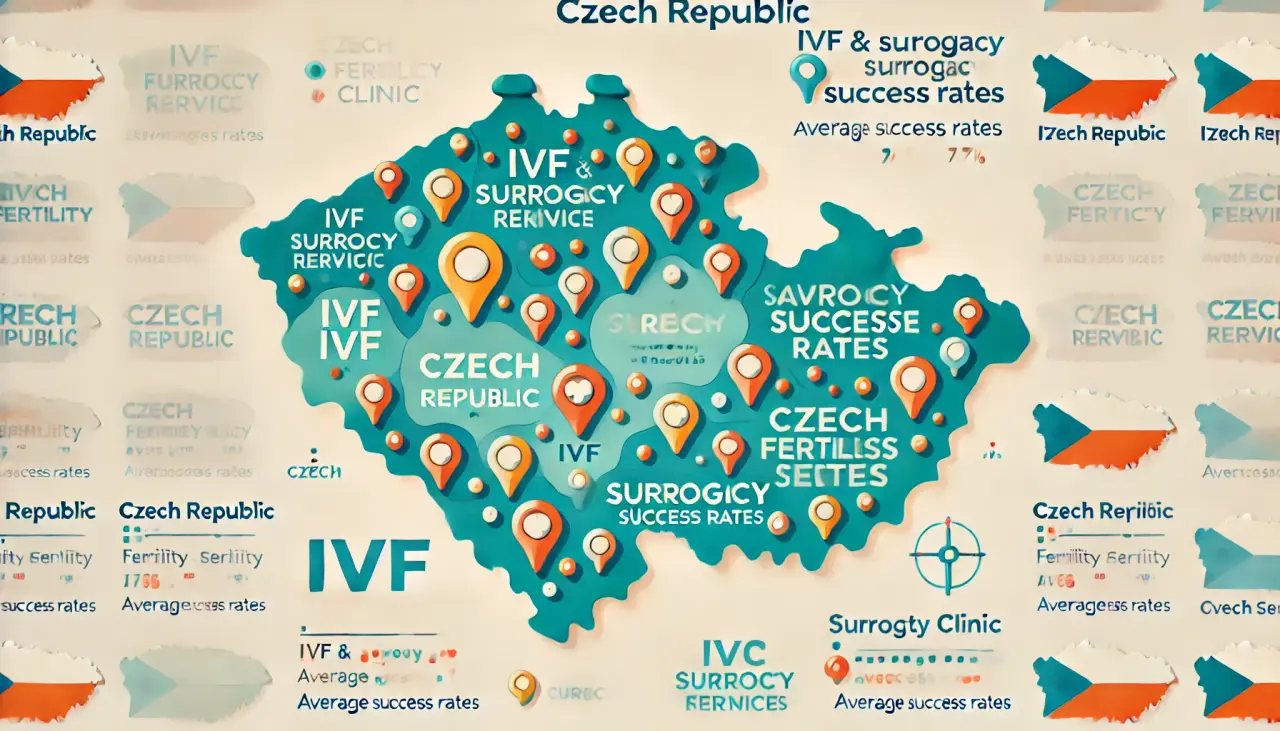
IVF Success Rates in the Czech Republic: Data, Egg Donation, and Surrogacy Trends
The Czech Republic has grown as a leading destination for IVF and surrogacy, especially given its strong success rates, advanced medical facilities, and accessible pricing. However, for intended parents seeking options, understanding the IVF success rates in the Czech Republic is vital to making an informed choice. This article explores success rates for standard IVF procedures, outcomes of egg donor success rates, and broader trends in Czech Republic surrogacy and IVF services.

Average IVF Success Rates in the Czech Republic
In recent years, IVF success rates in the Czech Republic have consistently reflected the high standards of fertility treatments across Europe. Average IVF success rates in the Czech Republic are around 45% for HCG pregnancy rates in standard IVF cycles, based on aggregated data from private reports and European fertility data. While the Czech Republic does not publicly release comprehensive government statistics, clinics are required to submit their results to national registries, ensuring a level of quality and transparency in services.
Egg Donor Success Rates: A Viable Option for Older Parents
Using donor eggs in IVF is a common practice in the Czech Republic, with significantly higher success rates than standard IVF cycles, particularly beneficial for older intended parents. Many Czech clinics report success rates between 50-60% for IVF cycles using donor eggs, depending on factors such as the age and health of both donor and intended parents. This option not only improves success chances but also helps overcome infertility challenges associated with advanced age.

Czech Republic Surrogacy and IVF Trends
The Czech Republic has developed a reputation for accessible and effective fertility services, drawing intended parents from around the world. Costs are competitive compared to Western Europe and North America, while the quality of care remains high. Surrogacy services are legally regulated, providing intended parents with well-defined procedures and protections, particularly in cases involving embryo transfers with donor eggs.